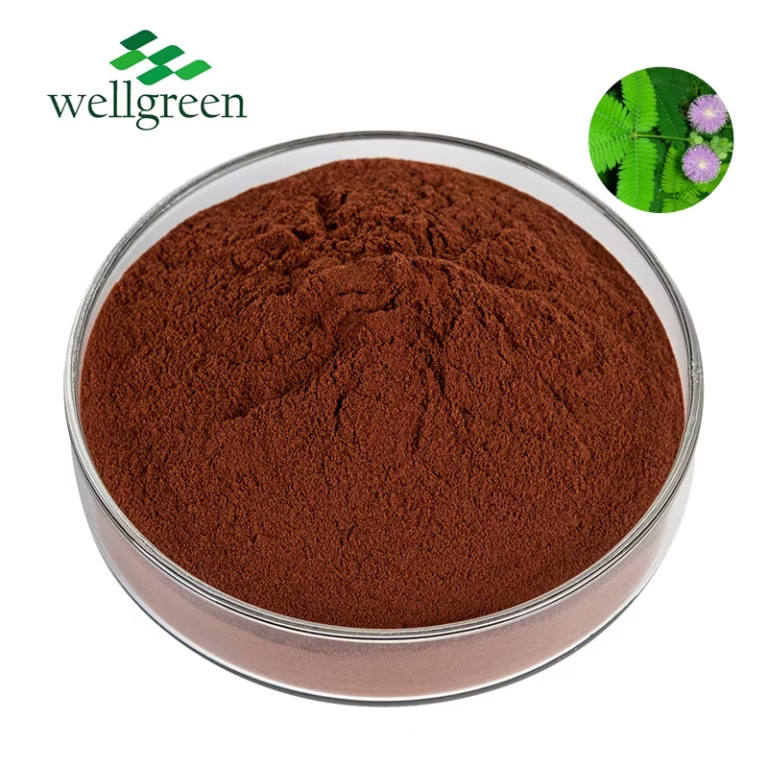
The root of this Amazonian plant, commonly known as quebracho blanco, have been employed for time immemorial in folk medicine across various regions.
Ethnobotanical studies reveal the effectiveness of M. tenuiflora extracts in treating a broad range of ailments, including pain.
Indigenous practitioners administer the extract in multiple forms such as teas to treat illnesses.
Some key applications of M. tenuiflora encompass astringent effects, and it is also believed to possess sedative properties.
An Examination of Mimosa tenuiflora Root Bark Extracts
This study focuses on evaluating the phytochemical profile of Mimosa tenuiflora root bark extracts. The isolation methods employed involved various solvents, including methanol. The resultant extracts were then subjected to a battery of analytical tools such as gas chromatography-mass spectrometry (GC-MS) to detect the predominant phytochemical compounds. Preliminary results reveal the abundance of a array of secondary metabolites, including flavonoids, which are known for their biological properties. This comprehensive phytochemical analysis aims more info to provide valuable insights into the efficacy of Mimosa tenuiflora root bark as a source of herbal remedies.
Traditional Uses and Potential Medicinal Benefits of M. tenuiflora Root Bark
M. tenuiflora, a species renowned for its remarkable root bark, has been employed in traditional medicinal practices for generations. Indigenous cultures have long acknowledged the medicinal properties of this powerful ingredient. The root bark is traditionally processed and applied to treat a spectrum of ailments, including digestive issues.
Contemporary research is commencing to investigate the efficacy of M. tenuiflora root bark in offering medicinal benefits. Studies have suggested that certain compounds present in the bark may possess anti-inflammatory properties, contributing its potential to combat a diverse array of diseases. Additionally, preliminary research suggests that M. tenuiflora root bark may also possess neuroprotective effects, though more comprehensive studies are needed to confirm these findings.
Pharmacological Activity of Mimosa tenuiflora: A Review of Root Bark Studies
Mimosa tenuiflora, commonly referred to as the jurema shrub, has a rich history of cultural medicinal practice in South America. The root bark of this variety is particularly regarded for its diverse pharmacological properties. Numerous researches have analyzed the potential benefits of M. tenuiflora root bark, revealing a range of molecules with significant biological potency.
- One aspect of particular interest is the anti-inflammatory potential of M. tenuiflora root bark extracts.
- Initial data suggests that these extracts may influence the inflammatory response, potentially providing alleviation from multiple inflammatory disorders.
- Furthermore, studies have demonstrated that M. tenuiflora root bark may possess antioxidant attributes, which could play a role to human health by mitigating oxidative injury.
The multifaceted nature of M. tenuiflora root bark ingredients and its potential for therapeutic uses warrant further investigation. As research progresses, a more comprehensive understanding of the pharmacological properties of M. tenuiflora root bark may emerge, potentially leading to the development of novel and effective healthcare interventions.
Isolation and Identification of Bioactive Compounds from *M. tenuiflora* Root Bark
This research focuses on the isolation of pharmaceutically active substances from the root bark of *M. tenuiflora*. Several extraction methods, such as aqueous solutions, will be employed to purify a variety of extracts. The analysis of these extracts will involve assays like chromatography and structure elucidation. The therapeutic activities of the isolated compounds will also be evaluated using in vitro systems.
This project seeks to identify and characterize potent molecules from *M. tenuiflora* root bark with potential benefits in drug development.
Examining the Anti-inflammatory and Antioxidant Properties of Mimosa tenuiflora Root Bark
Mimosa tenuiflora, commonly known as the Siberian tree, is a species native to tropical regions. Recent research has focused on its {potentialapplications for human health, particularly concerning its immunomodulatory and antioxidant properties. The root bark of Mimosa tenuiflora is a rich source of bioactive constituents such as flavonoids, which have been shown to exert potent effects against cellular damage.
- Studies have demonstrated that extracts from Mimosa tenuiflora root bark can potentally reduce the production of inflammatory molecules in both *in vitro* and *in vivo* models.
- Moreover, these extracts have exhibited notable antioxidant effects by trapping harmful free radicals, protecting cells from damage.
These findings suggest that Mimosa tenuiflora root bark holds promise as a {naturaltreatment for various inflammatory and oxidative stress-related conditions. However, further research is needed to fully elucidate its mechanisms of action and optimize its therapeutic potential.
